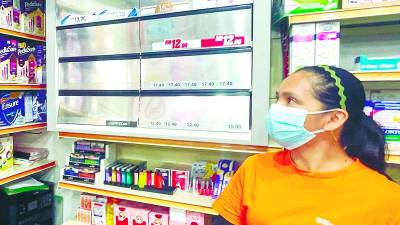PETALING JAYA: With the retail display ban on tobacco and vape products set for enforcement on Oct 1, attention is turning to whether retailers are truly ready and whether authorities would act without further delay.
The ban, which requires all tobacco and vape products to be kept behind closed cabinets or blinds, makes any visible display a breach of the law. Originally scheduled for April 1, 2024, the ban was postponed after requests from industry stakeholders.
Galen Centre for Health and Social Policy CEO Azrul Khalib said despite the extended grace period, compliance remains patchy, adding that inconsistencies persist even after retailers were given more than a year to prepare.
“Many retailers are prepared, having had ample time. But at KK Mart, MyNews.Com and FamilyMart, some products and advertising materials remain visible although enclosed cabinets have been installed.”
He said there has been more than enough time to prepare, adding that enforcement should begin with major retail chains, and failure to ensure their compliance would send the wrong signal and set a precedent.
Pantai Hospital Kl respiratory physician Dr Helmy Haja Mydin said further postponements would have undesirable consequences, as visibility of tobacco and vape products directly fuels smoking and vaping, especially among youth.
“Every delay prolongs young people’s exposure to tobacco marketing at the point of sale. It normalises smoking, encourages experimentation and drives impulse purchases. This visibility contributes to preventable diseases and death,” he said, adding that displays are not neutral.
“They shape perceptions. By reducing visibility, we make tobacco less accessible and less desirable, especially to impressionable youth. The (ban) is not just about restricting access, but also about reshaping attitudes and curbing subtle promotion in everyday retail settings.”
He said weak enforcement undermines public trust.
“When regulations are delayed or inconsistently applied, it creates loopholes for the tobacco industry to exploit. It slows behaviour change and erodes confidence in health policies,” he told theSun.
He said timely enforcement would strengthen government credibility and complement other tobacco control measures, including taxation, packaging rules and health campaigns.
“People judge the seriousness of a policy not by its announcement, but by its enforcement.
“Consistency signals commitment and builds trust. This is about protecting the next generation. We have the law. We have the rationale. Now, we need enforcement.”
While some smaller retailers remain concerned, larger chains have implemented the required changes, showing that enforcement is achievable.
A check at a FamilyMart outlet showed compliance.
“There have been no major challenges. Customers do ask why the shelves are covered, but once we explain that it is due to a government notice, they understand,” said a store supervisor.
From Oct 1, Rule 6 of the Control of Smoking Products for Public Health (Control of Sale) Regulations 2024 will take effect.
Penalties range from RM500 to RM30,000 for individuals, and up to RM300,000 or imprisonment for organisations that fail to comply.
